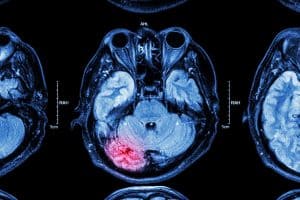Consequences of Catastrophic Traumatic Brain Injury

If you suffered a traumatic brain injury in a car accident caused by someone else’s negligence, or in any other type of accident, regardless of where your injury falls in the range of severity, you may have lifelong consequences of the injury.
The Centers for Disease Control and Prevention (CDC) has a list of some of the long-term effects of traumatic brain injury. A TBI can affect:
- Thinking (memory and reasoning)
- Sensation (sight and balance)
- Language (communication, expression and understanding)
- Emotion (depression, anxiety, personality changes, aggression, acting out, and social inappropriateness)
The CDC also reports that a TBI can cause epilepsy and increase the risk of Alzheimer’s disease, Parkinson’s and other brain disorders. Chronic Traumatic Encephalopathy (CTE) is a brain disease caused by changes in the brain. TBI and repeated concussive head impacts can lead to CTE.
Classification of traumatic brain injury
The CDC reports that a TBI is a contributing factor to about 30% of all injury-related deaths in the United States. One of the tools that the medical community uses to classify the severity of a TBI is the Glasgow Coma Scale (GCS) which assesses coma and impaired consciousness. Someone who has a GCS score of 3 to 8 is classified with a severe TBI. Those with scores of 9 to 12 are classified as moderate TBI and those with scores of 13-15 have a mild TBI. Of those who are hospitalized after a TBI, about 43% will have a related disability one year after the injury.
How TBI changes your life
About 5.3 million Americans live with a TBI-related disability, according to the CDC. The consequences of severe traumatic brain injury can affect all aspects of your life including relationships with your family and friends, your ability to work, do household tasks, drive, participate in recreational activities or the activities of daily living.
If an individual has sustained a traumatic brain injury caused by someone else’s negligence or an act of violence, he/she may be able to take legal action against the party at fault in causing those injuries. When you are dealing with an injury as severe as a TBI, you must make sure that you can recover enough compensation to cover ongoing medical costs, home health aides and care and other expenses such as a vehicle that can transport a wheelchair, or modifying a home for a hospital bed and handicap access.
The Los Angeles injury attorneys at Taylor & Ring can help clients who have sustained a traumatic brain injury because of someone else’s negligence. We work with investigators and professionals to gather the evidence you need so that we can hold negligent parties accountable for your injuries. You may speak to our lawyers today at 310.776.6390 or complete our contact form to schedule a consultation.

Serving clients throughout the Greater Los Angeles and Southern California area, we represent victims in a variety of civil litigation cases. If you or a loved one has been injured, turn to an experienced Los Angeles personal injury or sexual assault lawyer.
Find out more about Taylor & Ring.

